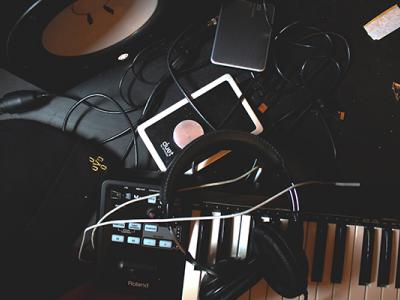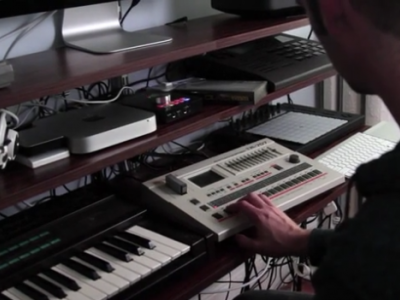What does a Live VJ do?
In the early days of music television channels like MTV and VH1, the term live VJ—adapted from disc jockey—referred to the medium's newly minted stars who hosted shows, introduced videos, and curated music video playlists. Today, live VJs are working visual artists who create, curate, and improvise videos for live events and performances—particularly those that involve music in some way. There are many different ways to approach this hybrid art form; some VJs incorporate other visual arts in their work, like collage, animation, 3D digital design, and lighting design.
Aspiring VJs should aim to build exceptional videography and video editing skills, knowledge of a wide range of music, and a large collection of images, videos, and effects to remix live.
Live VJs have become integral to the clubbing and festival scene, where they might create videos that enhance the DJ's playlist or shoot and manipulate video live as a form of performance. Live VJs might also create video experiences to support an artist's concert tour, a play or piece of performance art, a contemporary staging of a ballet or opera, a fashion show, or other events. In addition, they might display work in a gallery or other fine art setting.
At a Glance
Live VJs come from a number of educational backgrounds, including film, music, graphic design, and visual art. Most start out working nightclubs and bars, but may book gigs at festivals or even tour alongside a musical artist as they become more established. They could also start taking on contract work for high-profile recording artists going on tour. Additionally, live VJs are well positioned to work in the film industry as video editors or music video directors, in the theater industry as lighting designers, or in a diverse range of industries as interactive media specialists.
Live VJs are freelancers who may be contracted or employed regularly by nightclubs, music venues, recording artists, tour and festival production companies, event management companies, lighting designers, theatrical directors, and more.
Aspiring live VJs should aim to build exceptional videography and video editing skills, knowledge of a wide range of music, and a large collection of images, videos, and effects to remix live. A great reputation and large professional network are helpful for finding jobs, but in lieu of that, a sample video treatment of an album, concert setlist, or DJ playlist can serve well to demonstrate a live VJ's skills to a potential employer.
- Video editing software
- Analog video manipulation
- Broad musical knowledge
- Comfort with a wide range of video styles (ambient, dance, psychedelic, etc.)
- Lighting design
- Animation
- 3D digital design
- Networking
- Live performance
Live VJs are cutting-edge visual artists who know a little bit about everything, from film editing and graphic design to music, fine art, and pop culture. They're usually interested in archival footage, nightclub culture, and remixing as an art form. Possessing an original visual style or approach is essential for finding work, as are strong networking and self-promotion skills.
Live VJs lead varying lifestyles based on the types of work they pursue. Those who work mostly in the nightlife scene work, unsurprisingly, in the late afternoon and evening—although they're likely to spend part of the day searching for existing footage, shooting original video, and preparing a plan for the show, if not creating a video beforehand. On the other hand, those who primarily create (and not perform) videos for concerts, tours, and other performances can work wherever and whenever they choose, so long as they complete the project by the deadline.







